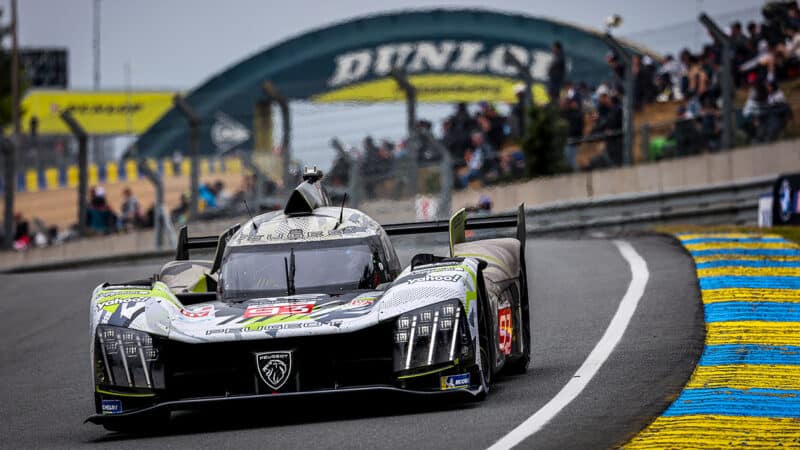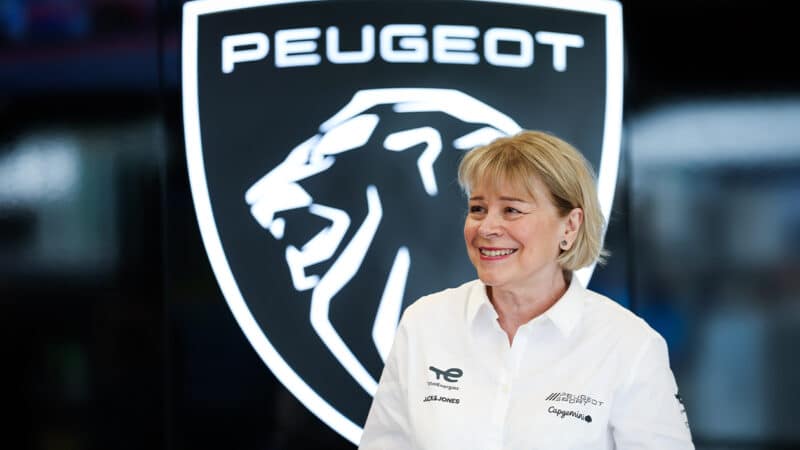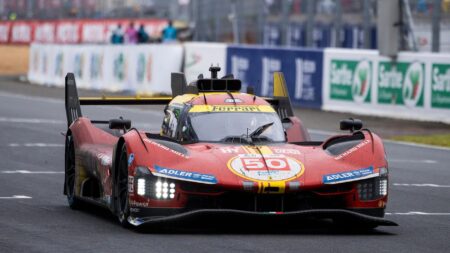It left Peugeot trailing its fellow French firm and Hypercar newcomers Alpine, whose A424 Hypercars were around 0.5sec a lap quicker — until they retired.
Alpine also has lofty ambitions in WEC, and is laying the path to a hydrogen-powered competitor with its Alpenglow concept car, which performed a parade lap of Circuit de la Sarthe before the race. There’s a hydrogen class set to join WEC in 2028, but Peugeot is reserved in its interest at the moment.
“Full hydrogen doesn’t make sense because the weight is not ideal for such a car,” says Stellantis motor sport chief Jean-Marc Finot. “We currently run a little over 1000kg and we could go lighter. If we’re being optimistic, a fuel cell is 1300kg; if we’re less optimistic, 1500kg. The solution will have to be a mixture of internal combustion and hydrogen. For now we are focused on petrol/electric hybridisation.”
With current Hypercar regulations extended further into 2029, is Peugeot in WEC for the long haul, no matter the result?
“At the end of the day, we like winning,” says Jackson. “The drivers, manufacturers and cars we see today are probably the sport’s best line-up ever. It’s extremely competitive. And there should be competition, because it challenges you to be better and better with the team, the engineering, with everything. All the manufacturers are very talented and there are only small differences between them all. But we’re not here just to be a competitor. We would love to win. And that’s our end game.”
Finot agrees. “We made a decision with the board to race until 2026 [before regulations were extended to 2029]. With new regulations, we will reconsider. It’s the most competitive 24 Hours of Le Mans ever. I don’t remember in any form of motor racing having 15 cars at the top level that can all win. We are very happy to help write these pages in history. At the end of the day, the car will catch up. I’m not worried.”



